What a night! For the first time, the University of Technology Nuremberg took part in the Long Night of Sciences at Cube One – and it was a great success. On October 25, countless visitors filled our campus late into the night to experience science up close. The diverse program offered something for everyone: engaging hands-on stations, interactive experiments, inspiring talks, and insights into current research projects. From artificial intelligence and sustainable technologies to forward-looking questions about education and society – the variety of topics reflected UTN’s interdisciplinary spirit. Even late in the evening, many rooms and stations were still bustling with activity. Until midnight, an inspiring and open atmosphere made science come alive – accessible, exciting, and full of discovery.
A heartfelt thank-you to everyone who made this evening possible – and of course to all those who stopped by, asked questions, explored, and participated. We’re already looking forward to the next Long Night of Sciences!
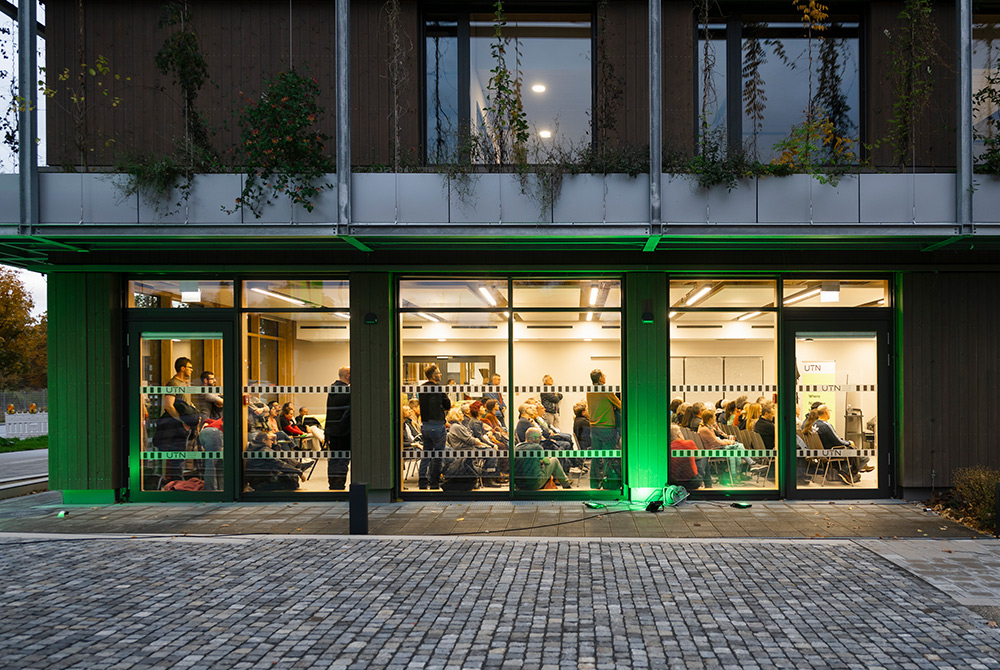
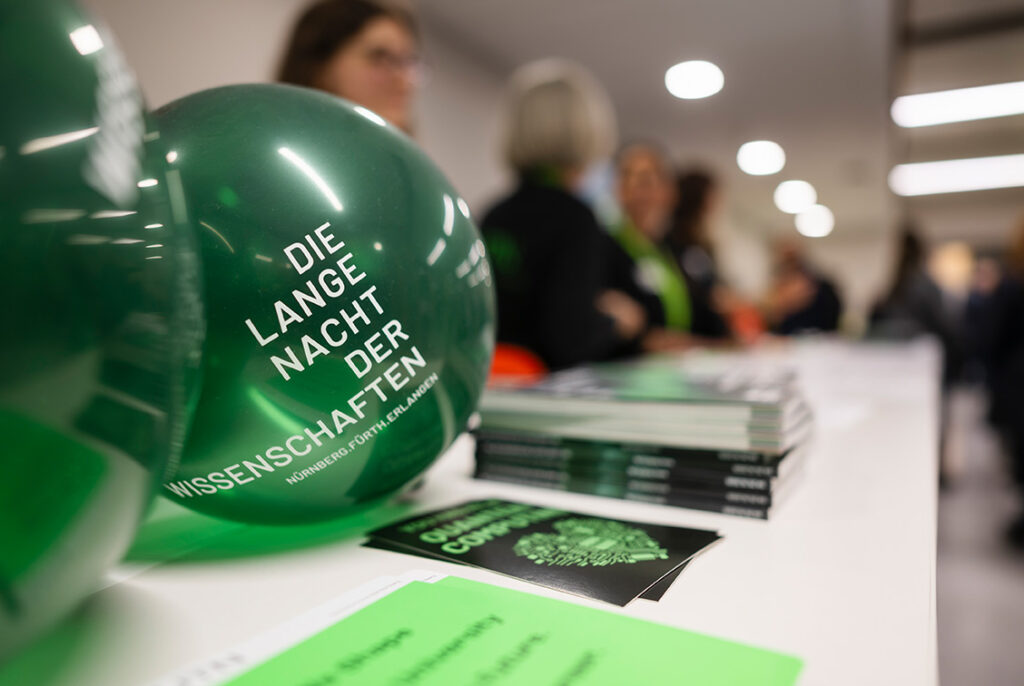
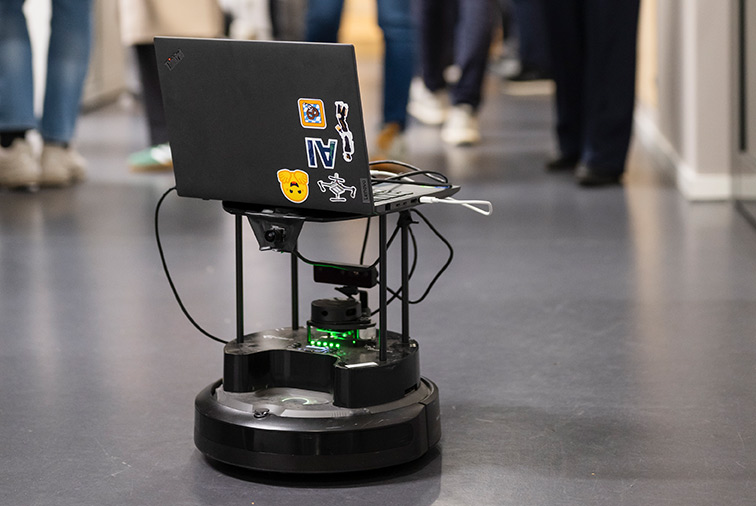
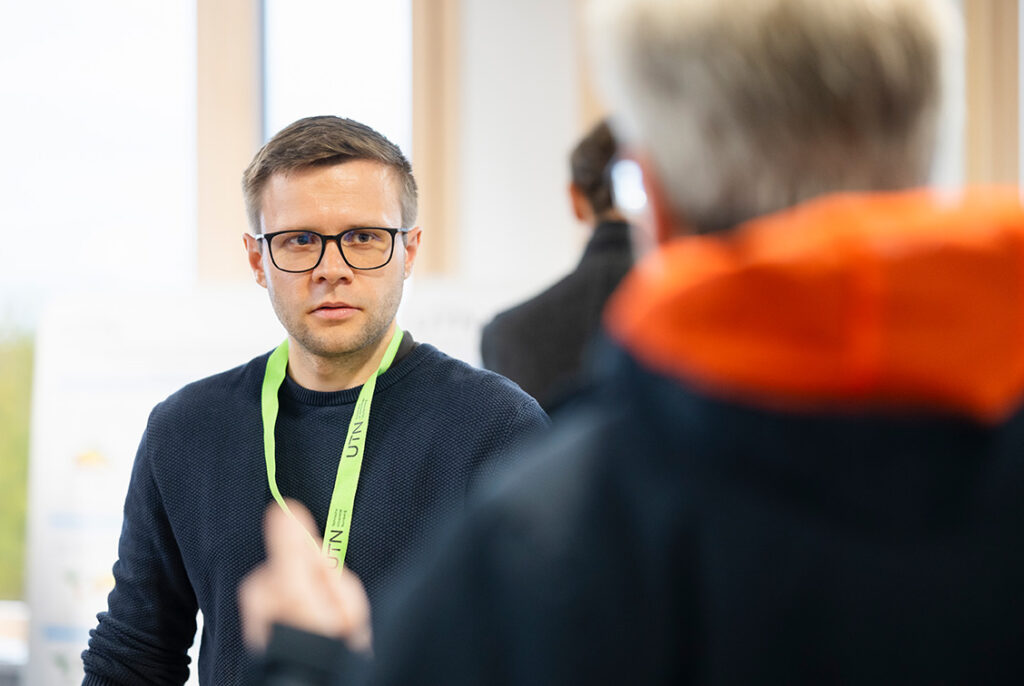
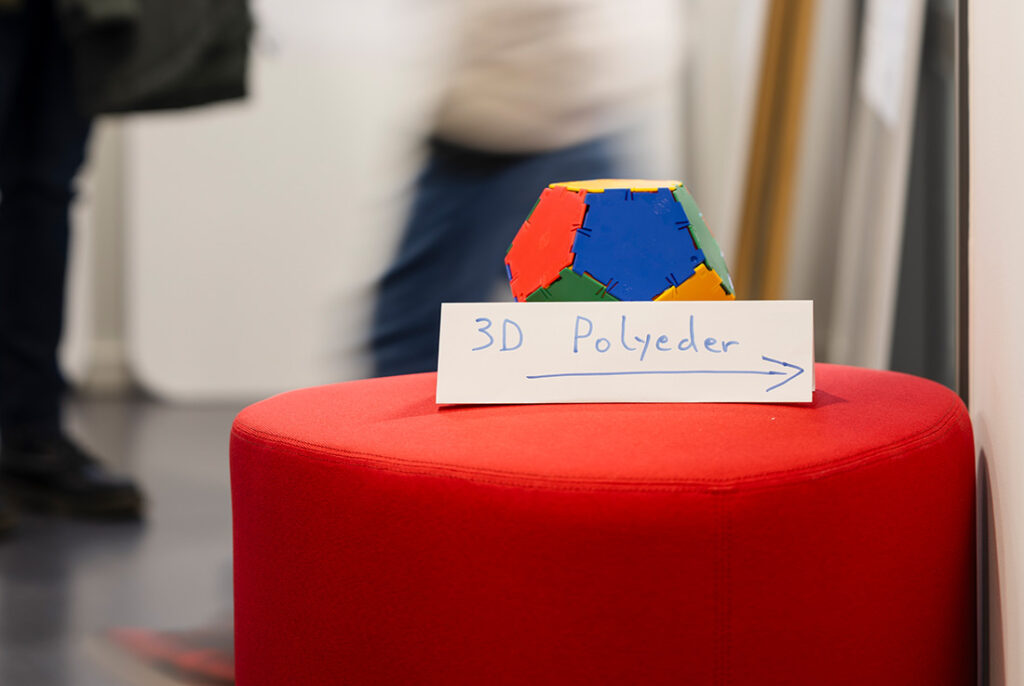
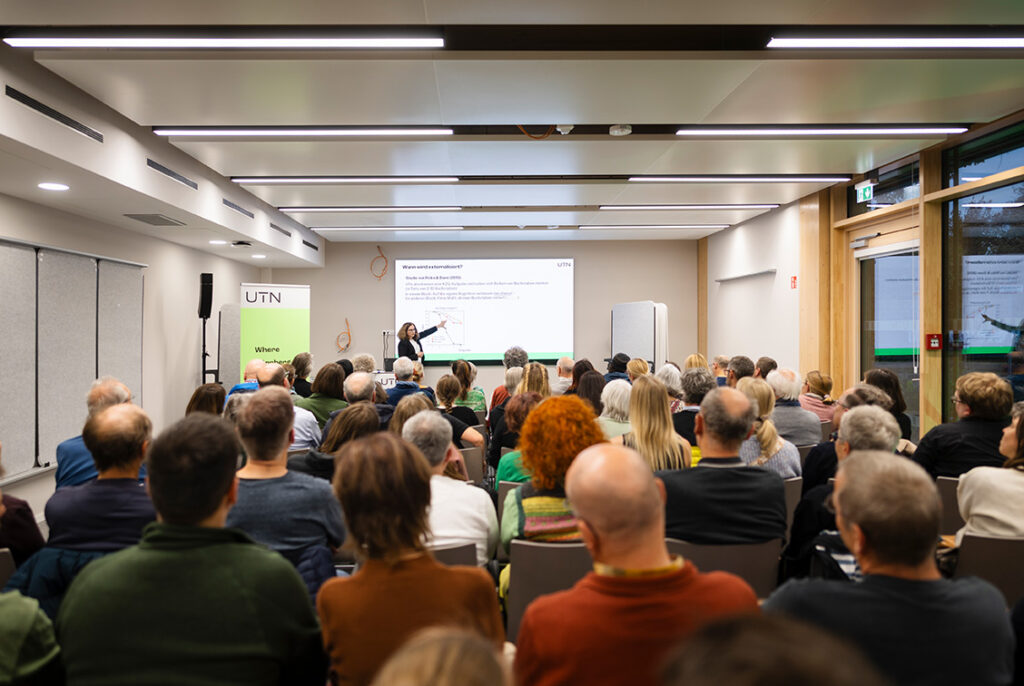
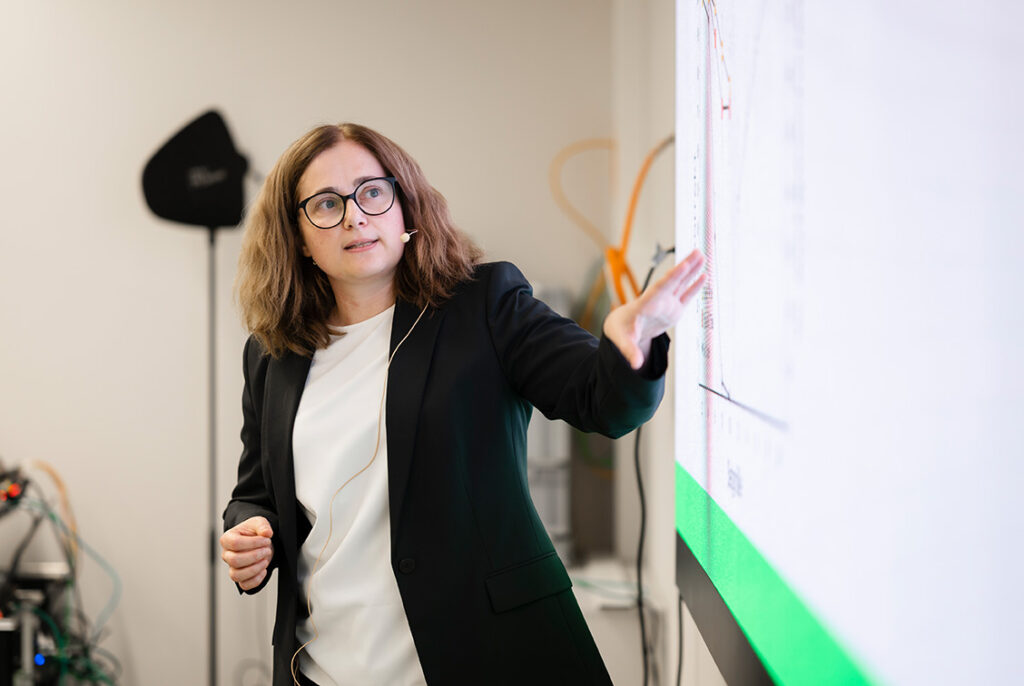
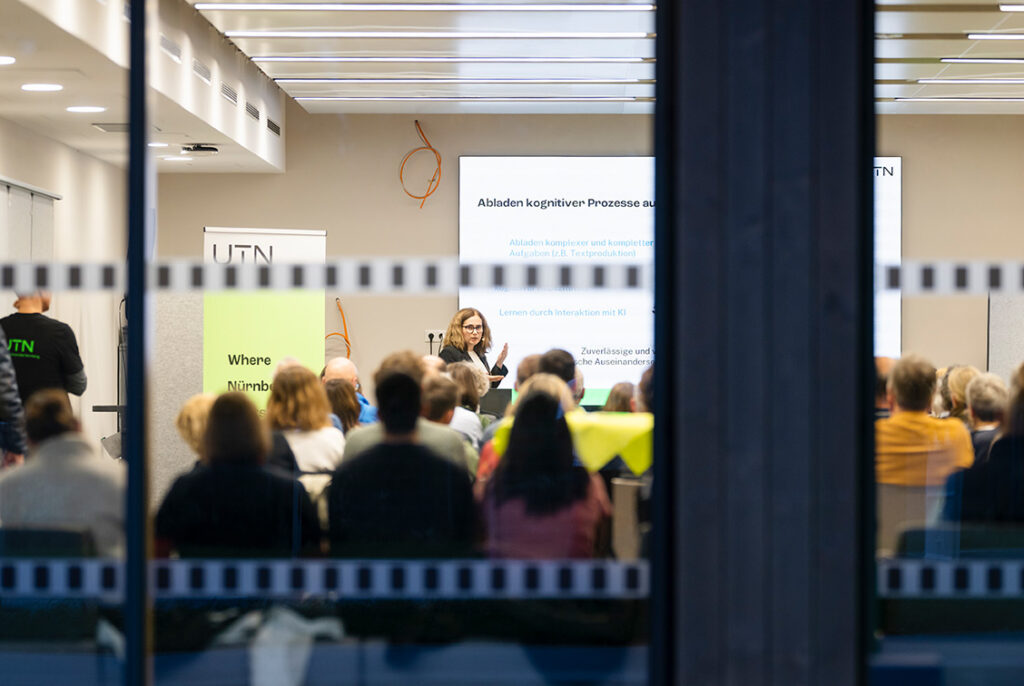
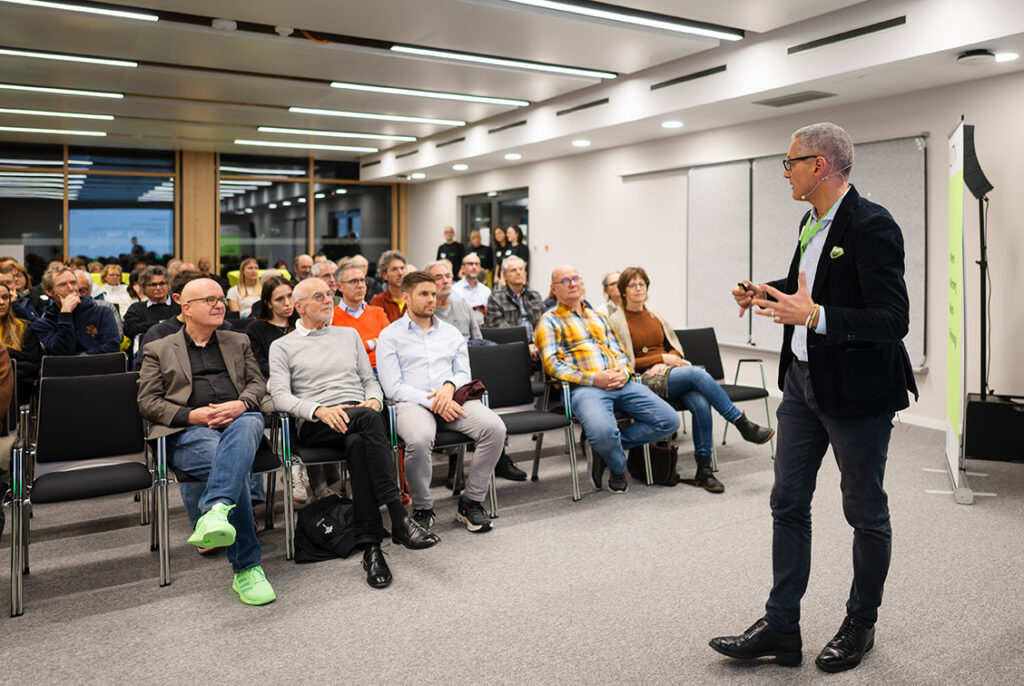
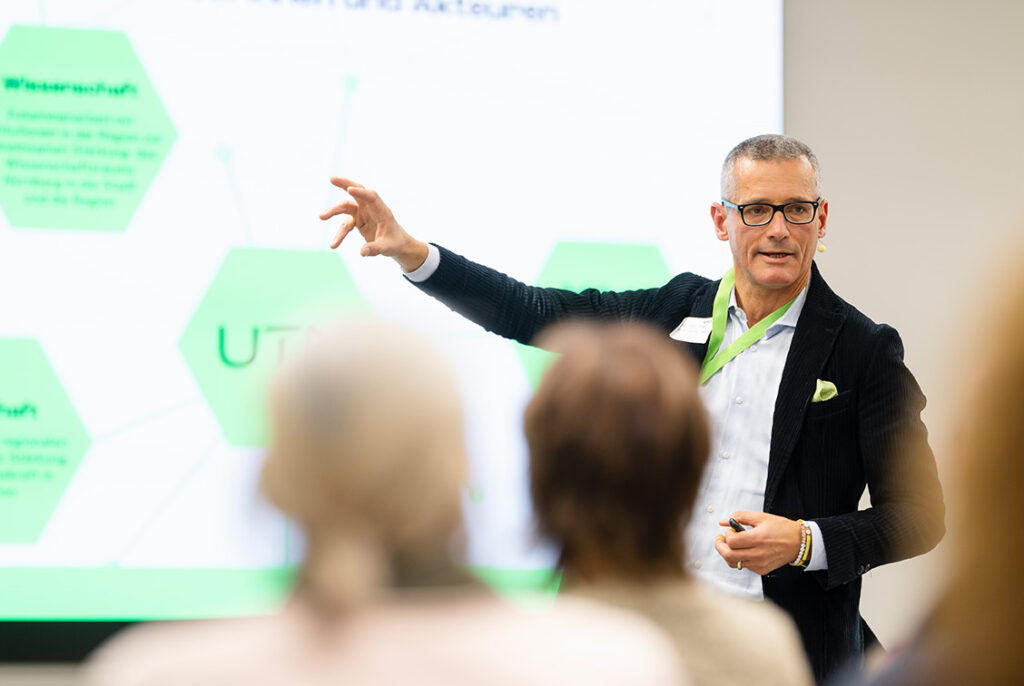
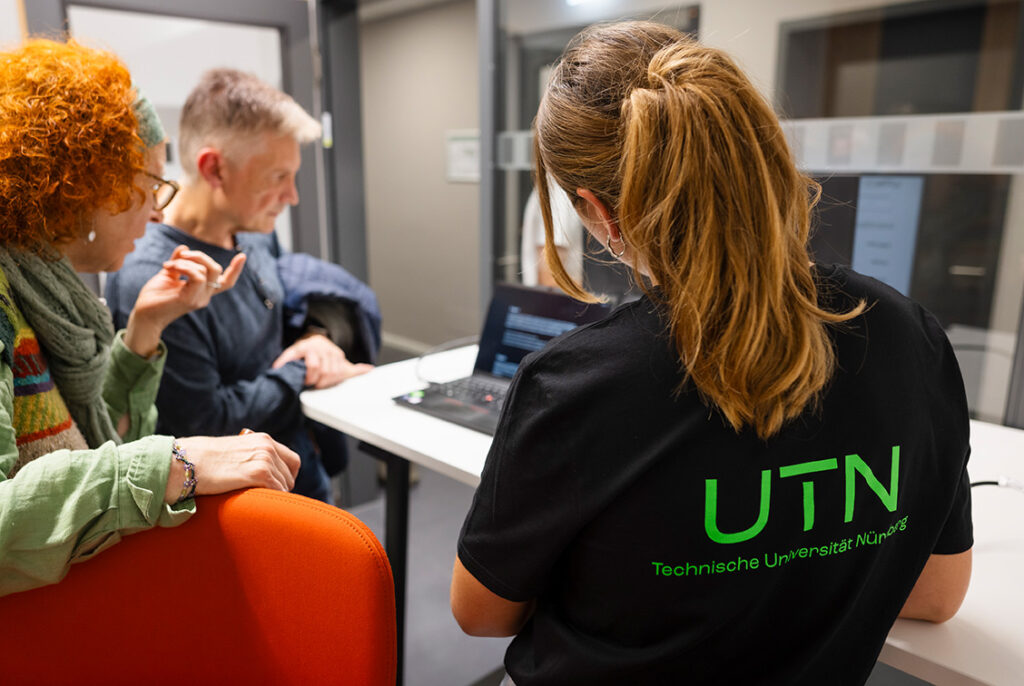
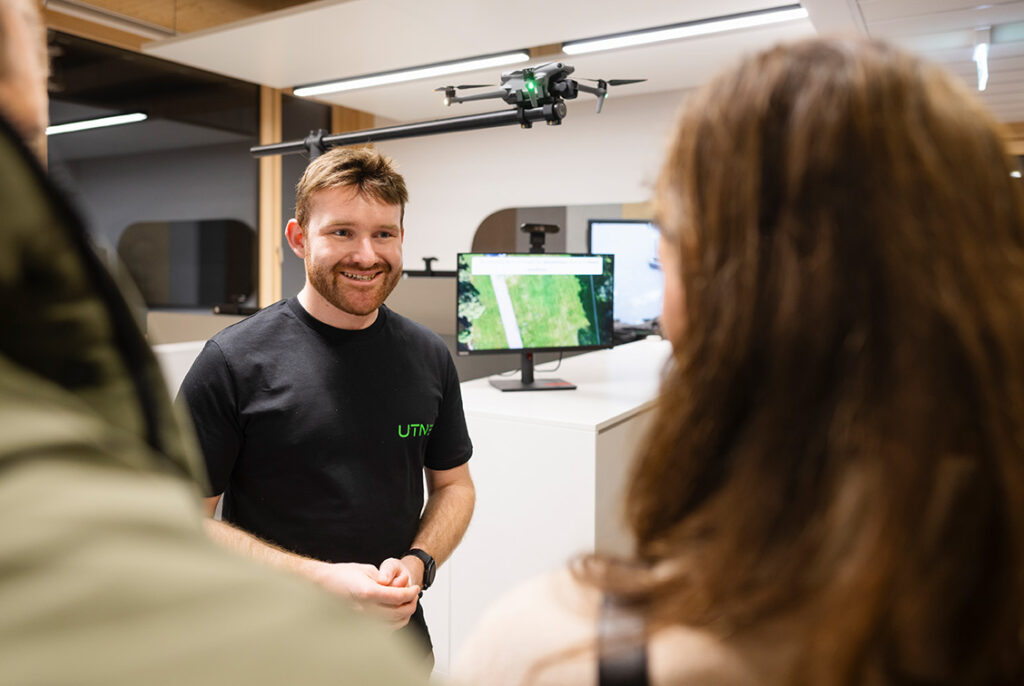
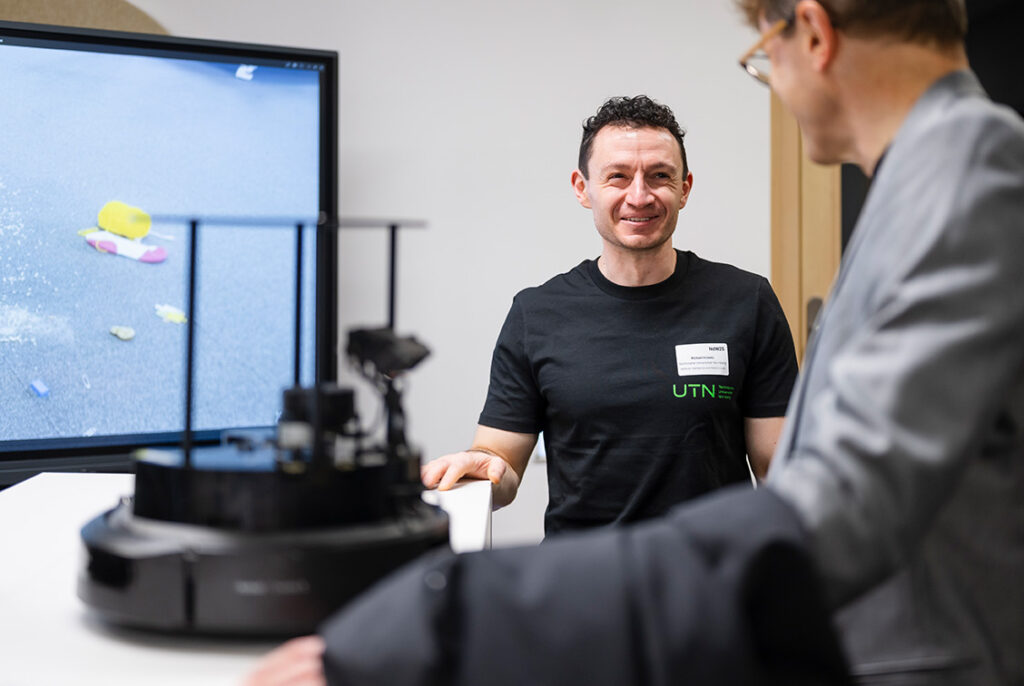
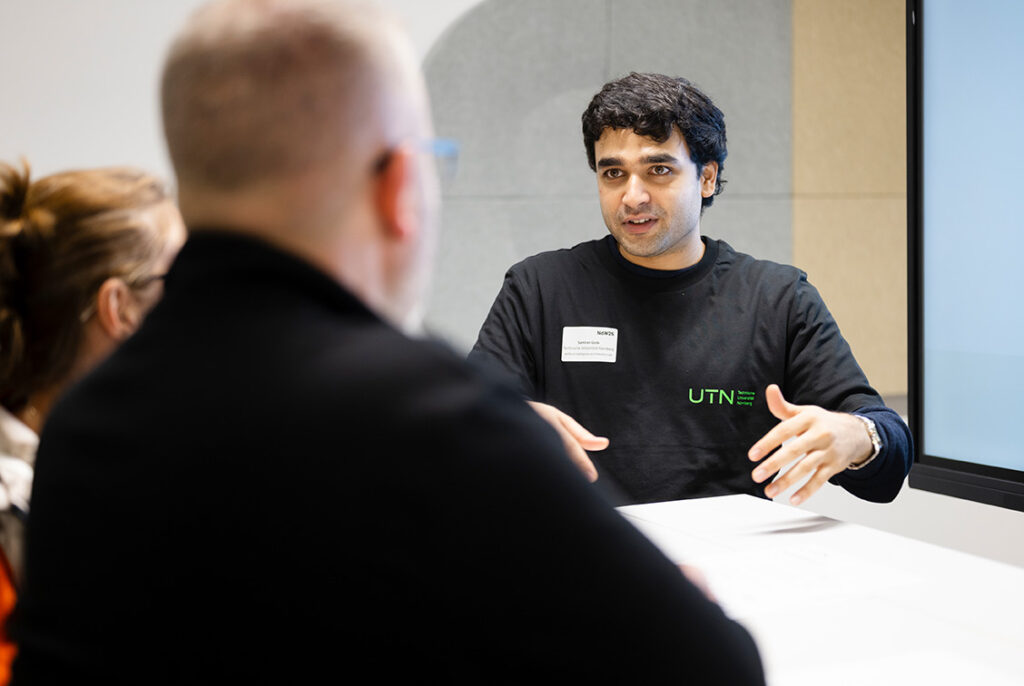
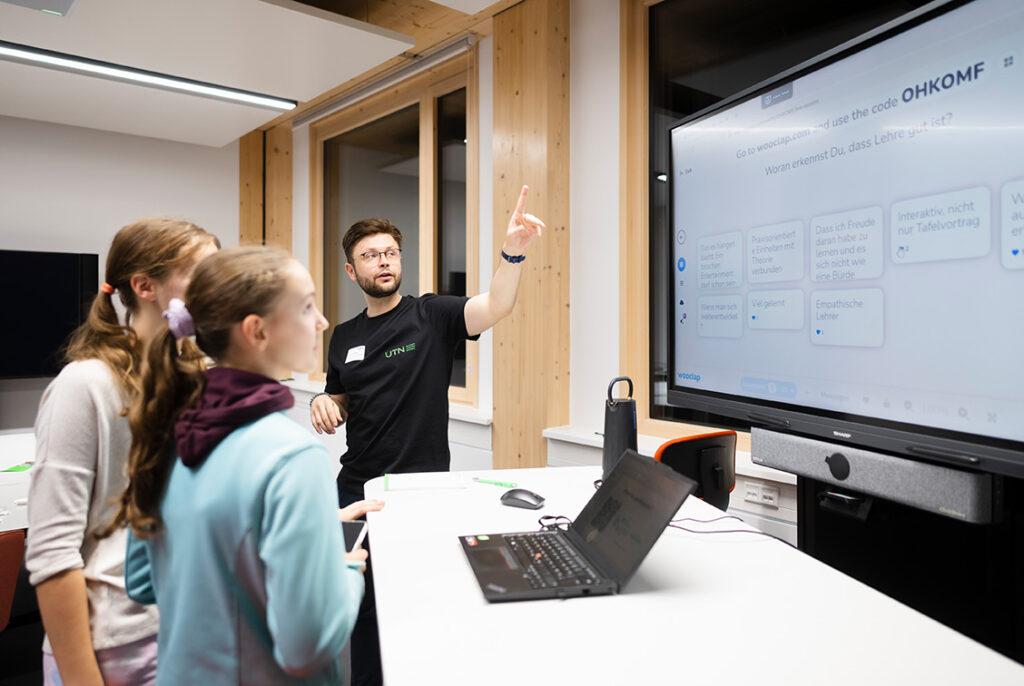

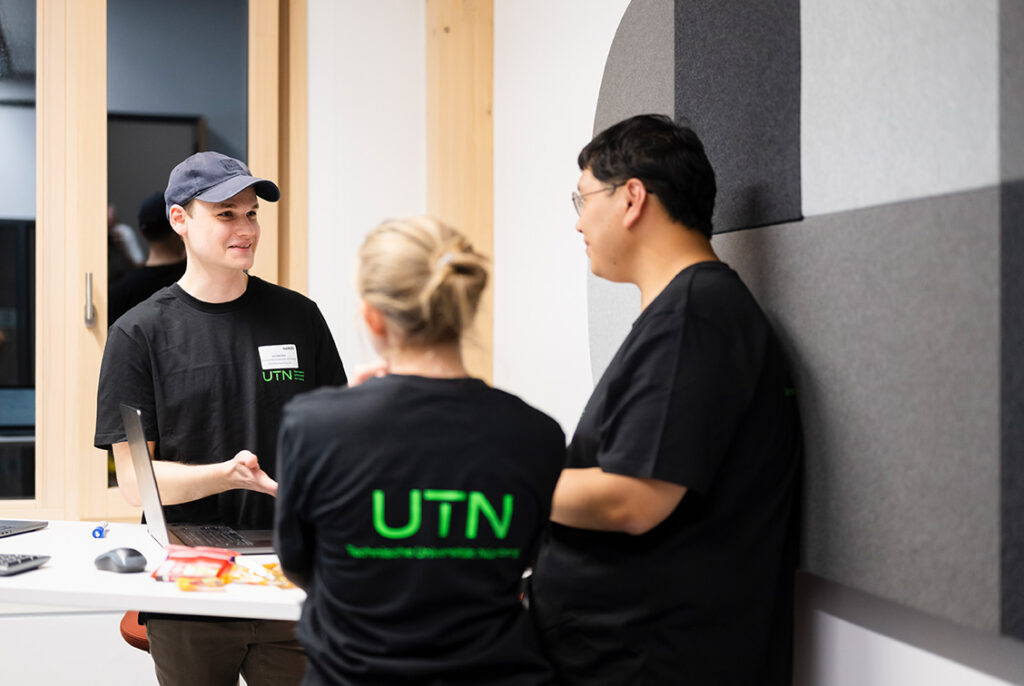
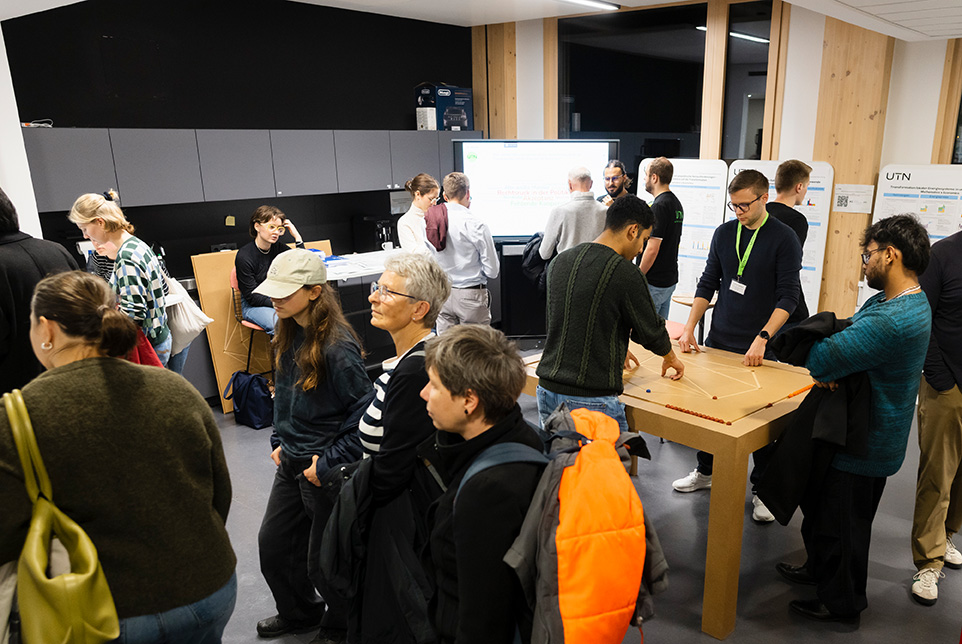
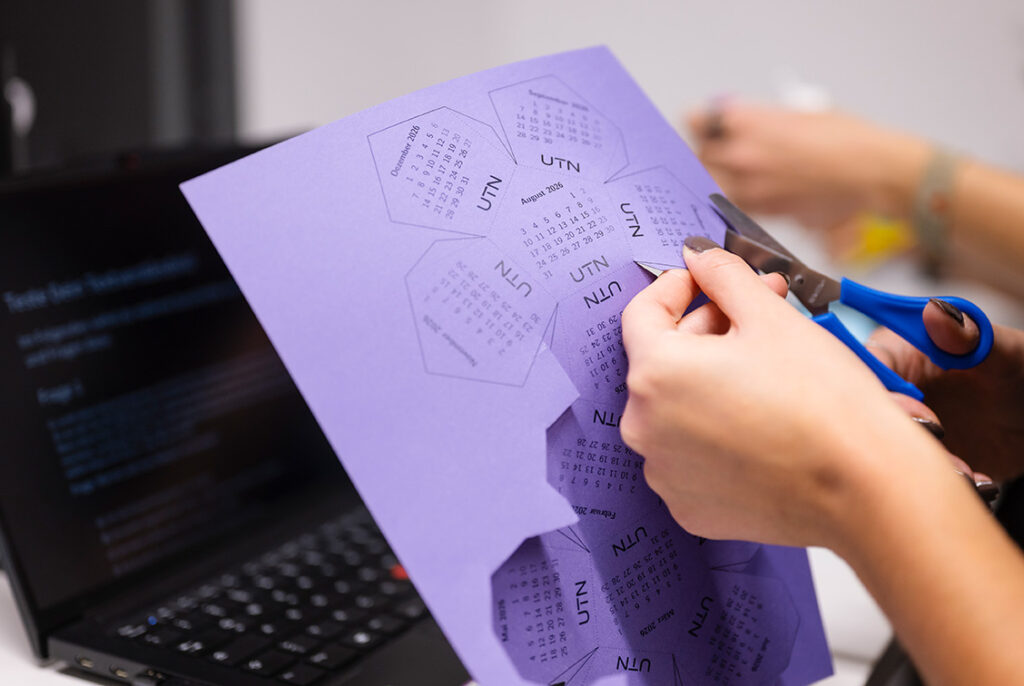
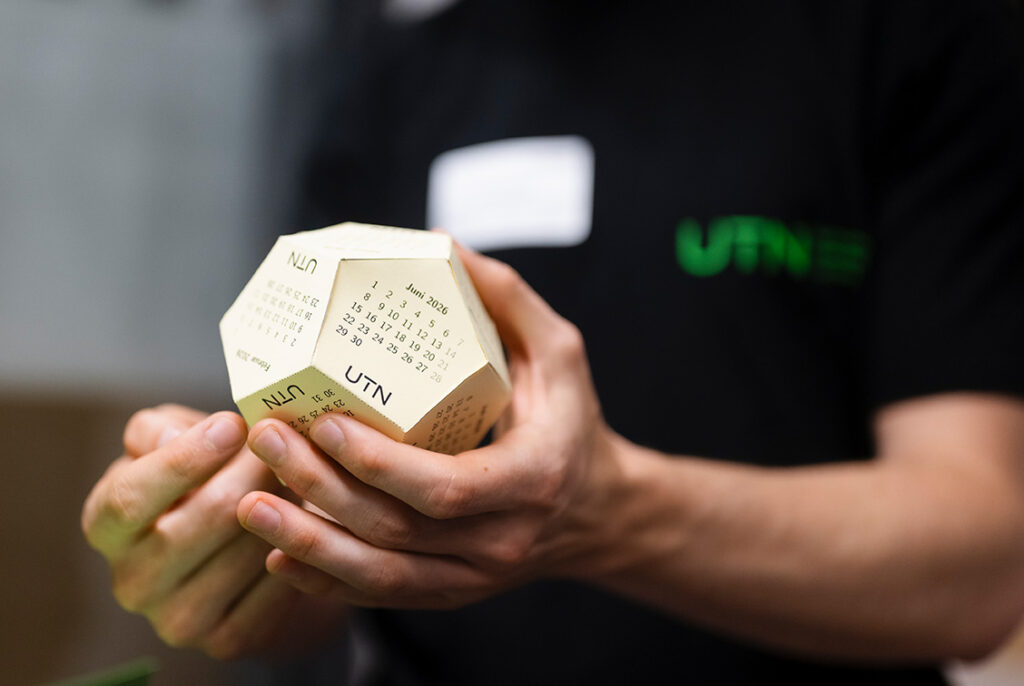
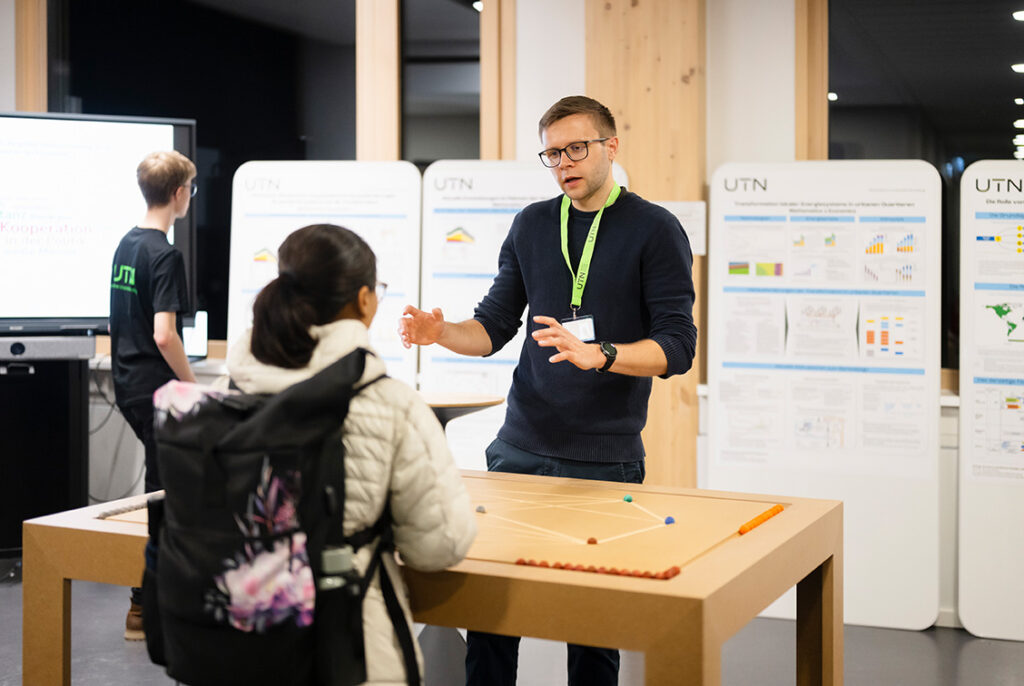
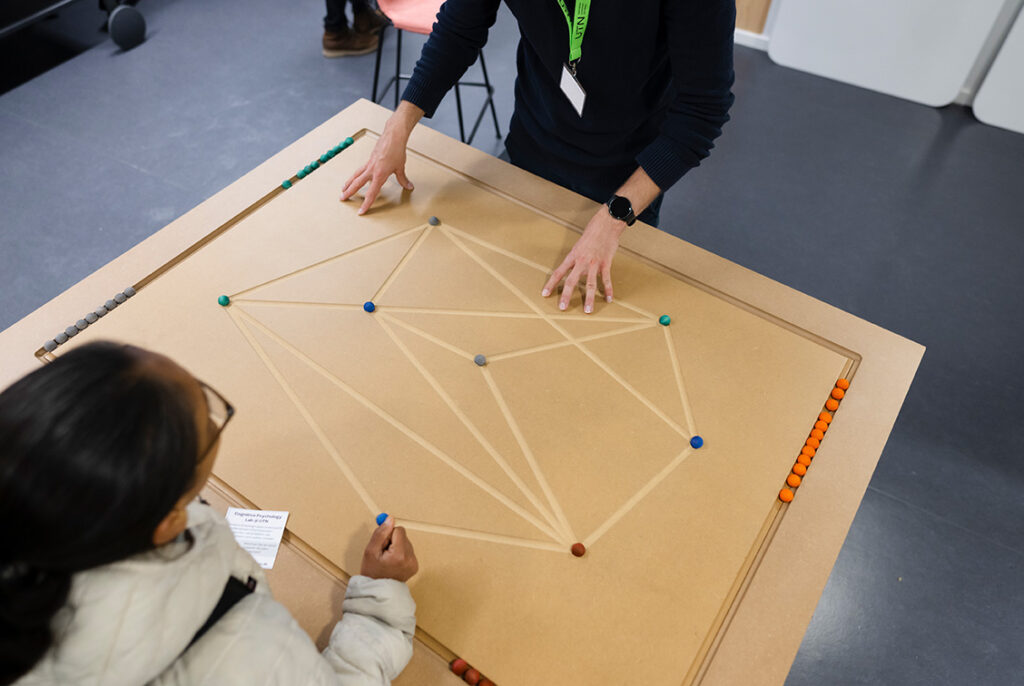
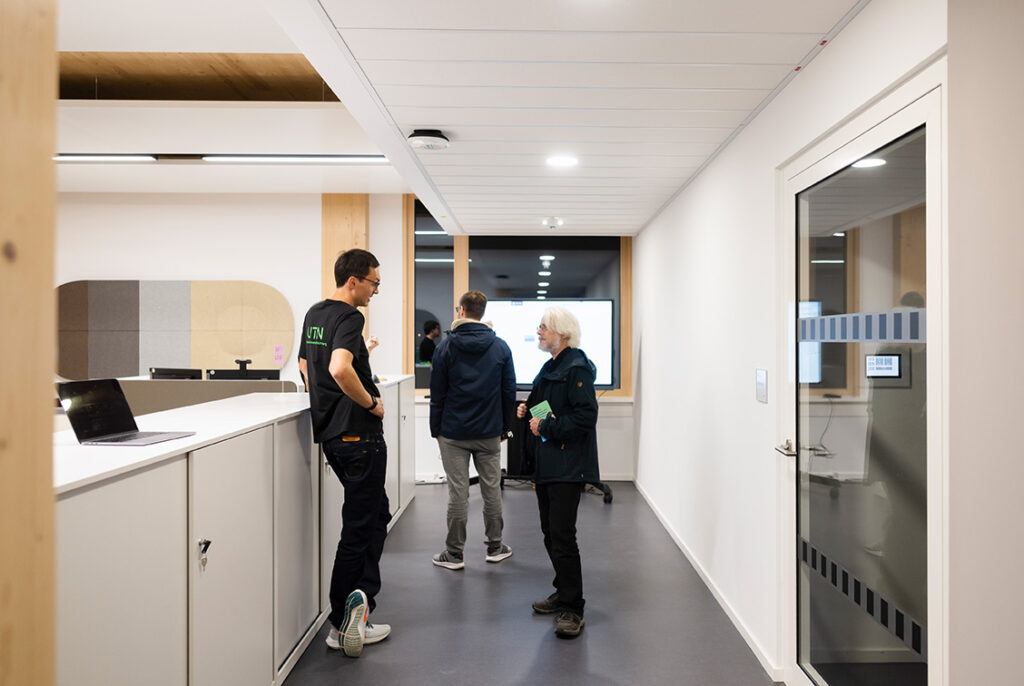
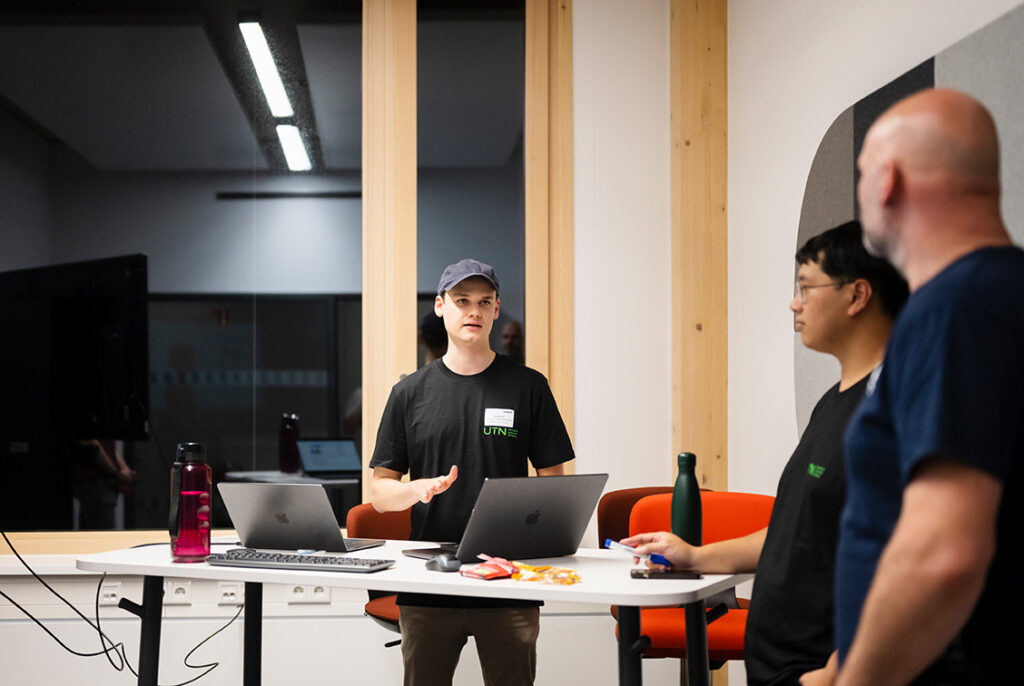
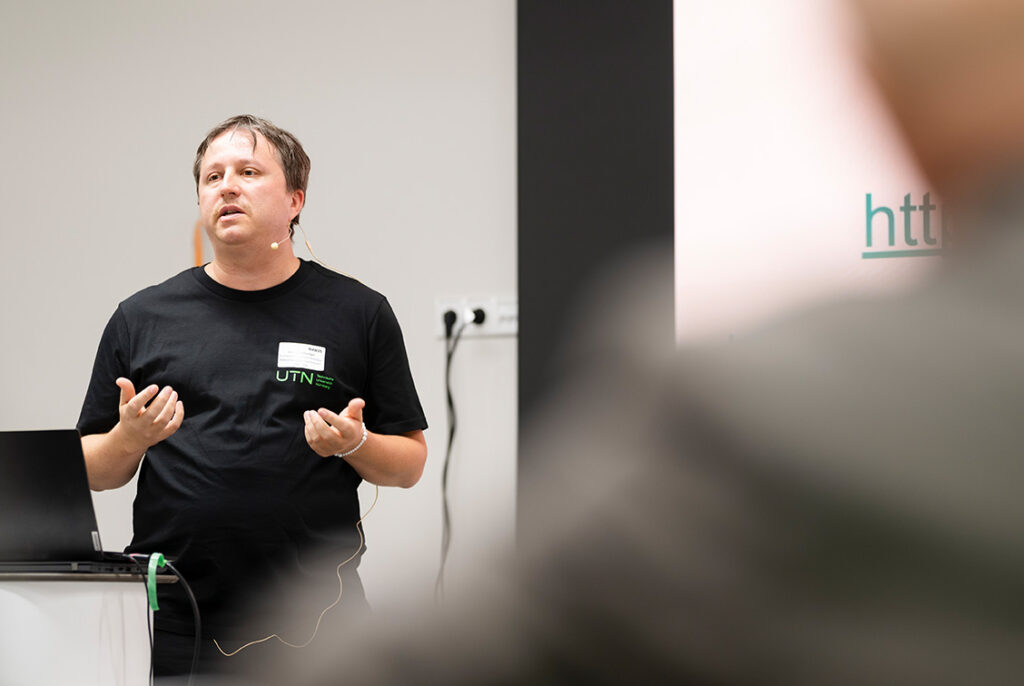
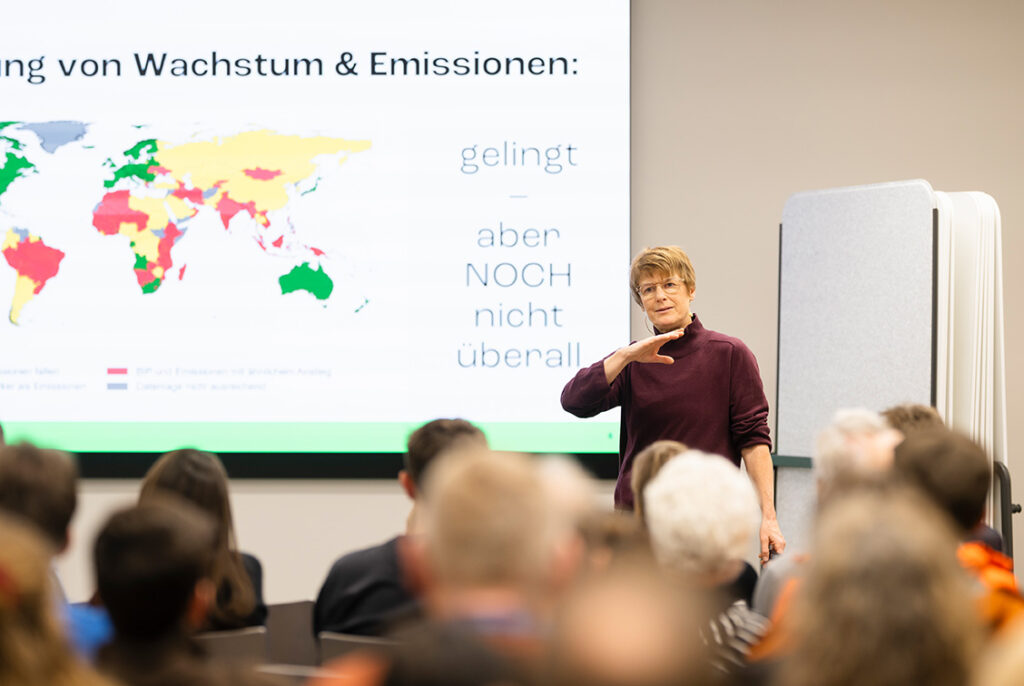
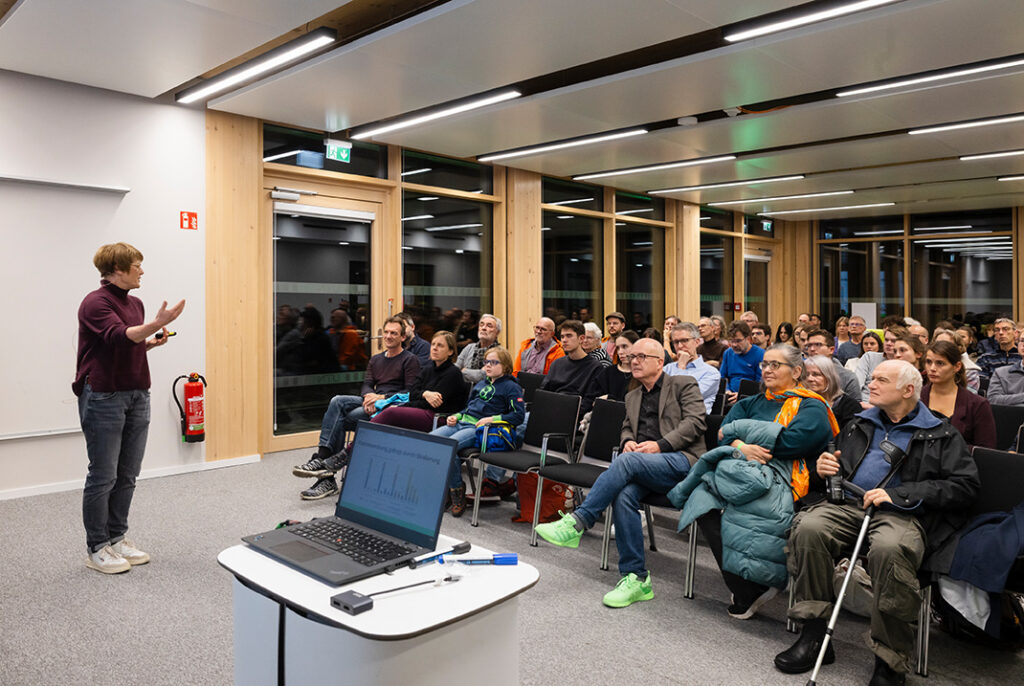
Program
Interactive activities, 5 P.M. to midnight

3D Geometry to Explore and Build –
Discover the World of Polyhedra!
Polyhedra are geometric solids with vertices, edges, and faces. At our interactive station, you can not only explore them but also build your own! From simple shapes to complex constructions – our creative challenges offer something for everyone. Discover in a playful way where polyhedra appear in everyday life and how they play a role in research on optimization and artificial intelligence.
Playing into Strategy – Exploring the World of Game Theory
Discover the basics of game theory! Whether in a duel or group setting – experience classic decision-making scenarios like the Prisoner’s Dilemma or the Ultimatum Game. Interactive games and thought-provoking challenges invite you to participate, reflect, and discuss. Perfect for anyone curious about strategic thinking!


Mathematics x Economics: Nodes, Edges, Challenges – Hands-on Graph Theory
Dive into the world of graph theory! Work with us to solve classic problems such as the Traveling Salesperson Problem, the Four Color Problem, or the Königsberg Bridge Problem. Tricky puzzles and clear explanations await you!
CANCELLED
Think with Us! How Children Learn to Think

Exhibitions, 5 P.M. to midnight

Get to Know the Cognitive Psychology Lab at UTN
People are at the center of psychological research: How do we remember the past? How do we think about the future? And how do modern technologies influence human thinking? The Cognitive Psychology Lab at UTN warmly invites you to visit its information booth, where you can learn more about our current research topics and scientific projects. The program is complemented by interactive talks, offering fascinating insights into our work as part of the official event schedule.

Intelligent Machines in Dialog: How AI Systems Are Changing the Interaction Between Humans and Robots
How do robots manage to orient themselves in their environment, understand tasks and act independently? The Department Computer Science & Artificial Intelligence at UTN provides insights into the exciting world of modern robotics and artificial intelligence. On display are robots that react to visual signals – for example, to move through the room based on a target image. Voice control also plays an important role: for example, a drone can respond to a description during a rescue mission and search specifically for missing persons. Visitors can experience live demonstrations at several stations and receive clear explanations of the technology behind them. How do machines learn what we mean? And what does this mean for future applications in everyday life, in care or in disaster control?
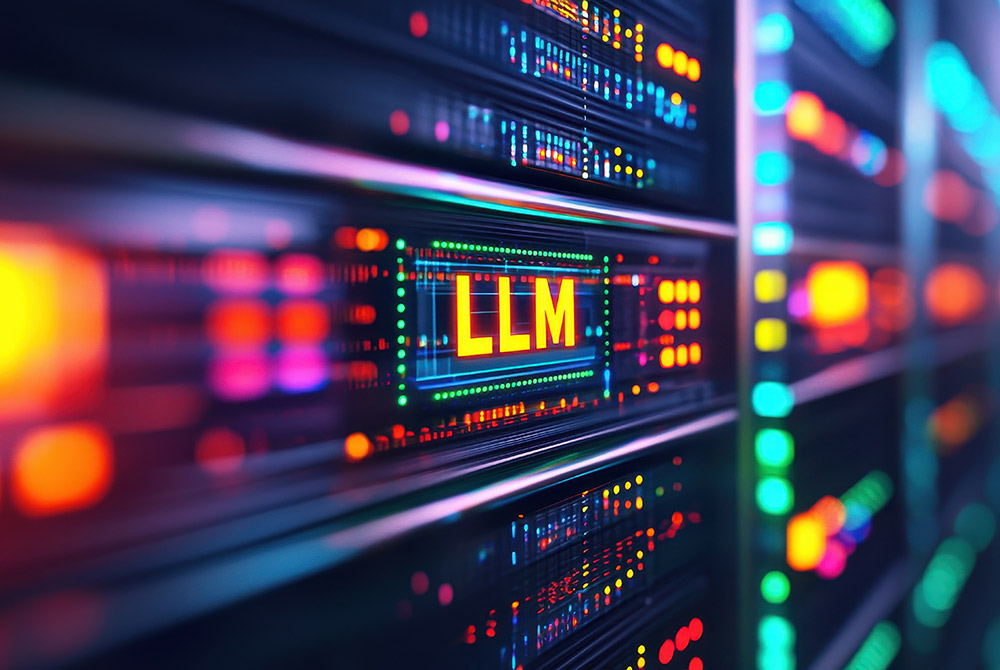
Democratizing Data Science
Before data can be analyzed, it is necessary to know where the data is located and what it actually means. This process is called “Schema Discovery”, and it is essential before any insights can be gained from the data. Especially in the field of Machine Learning, it has become a frequent but often underestimated activity. This process can be improved by mapping the initially “chaotic” set of files to a database schema, which can then be iteratively refined and loaded. The goal is to automate the previously tedious parts of this process with the help of Large Language Models (LLMs). This presentation introduces “DataLoom”, a prototype that carefully orchestrates the use of LLMs for the “soft” problems and traditional algorithms for the “hard” problems in data loading.
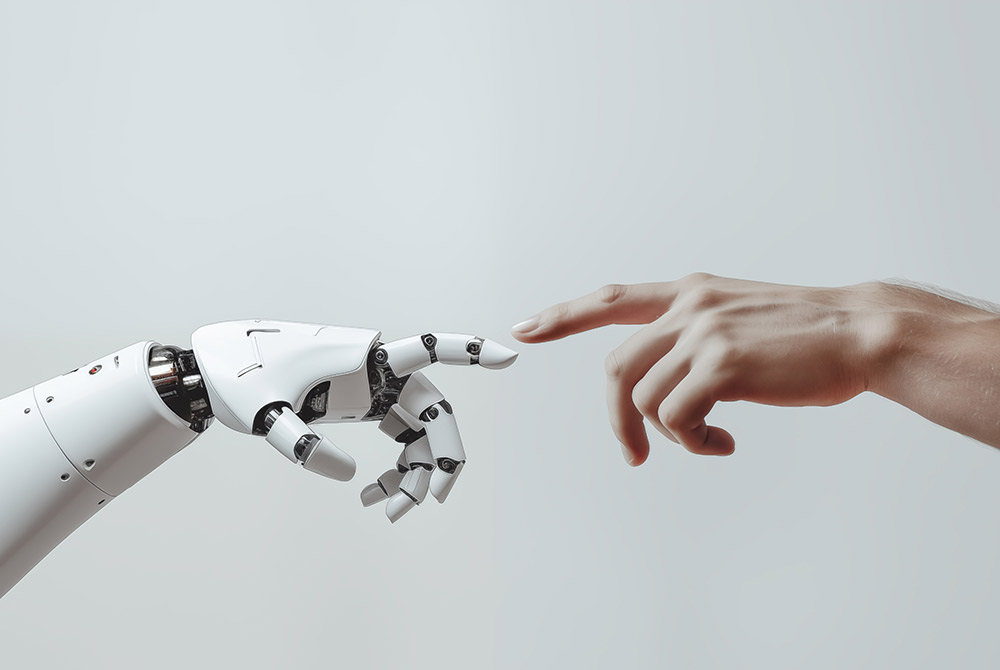
Humans vs. AI: Who Understands Language Better?
Language models such as ChatGPT generate impressive texts – but do they really understand language? And how well can they remember things? At this interactive hands-on station, you can test for yourself how well artificial intelligence performs in comparison to humans. In two or three short experiments, you compete against an AI language model: Who remembers read texts better? Who understands them better? And where do surprising weaknesses emerge, in humans and in machines? Come by, take on the challenge, and experience artificial intelligence up close!

Modern Teaching at UTN: Insights into the Learning Design
How can we design university teaching to promote learning? At the Digital Learning Experience and Active Design (LEAD) Lab station, you’ll get an insight into the learning design at the University of Technology Nuremberg (UTN). Discover how courses are developed at UTN. Learn about the key components of course design and find out how the Digital LEAD Lab supports teachers in developing and implementing learning programs.
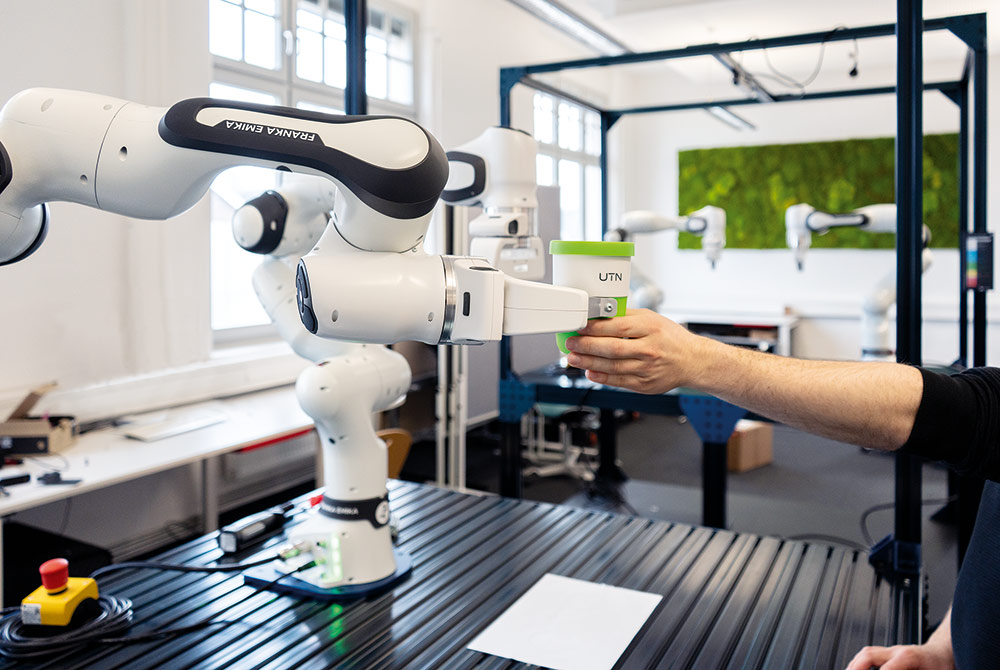
Research, Teaching, Careers: What Makes UTN Special as an AI University
The University of Technology Nuremberg (UTN) is a university in development—modern, digital, interdisciplinary. But what does that mean in concrete terms? This station provides an overview of the profile, structure, and vision of the UTN. Visitors learn what makes the UTN special as a place for teaching, research, and professional development. Whether in science or administration, everyone who works at UTN plays an active role in shaping the university: flat hierarchies, modern infrastructure, creative freedom, and an interdisciplinary environment. The focus is on topics such as artificial intelligence, career opportunities in science, working at a new university – and current job vacancies. Personal conversations with employees complete the programme.

Rethinking Data Compression
Want to store data efficiently and analyze it quickly at the same time? Virtual makes it possible: a lightweight method for compact, correlation-aware compression of tabular data. Ideal for data lakes – without special formats, with maximum effect on memory and performance.

Mathematics x Economics: Energy Policy and the Local Energy Transition
How can the energy transition succeed on national and regional levels? This exhibition sheds light on current debates in German energy policy and shows how mathematics and economics work together to develop solutions for climate-neutral neighborhoods and renewable electricity systems. The focus is on local strategies, regulatory challenges, and innovative approaches for a sustainable energy future.
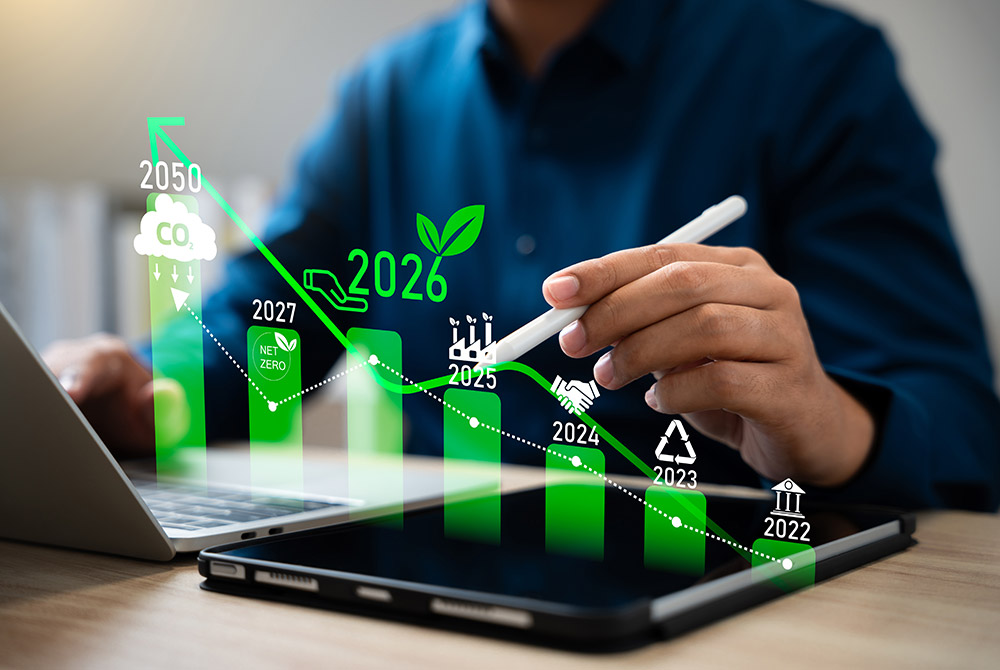
Mathematics x Economics: Markets, Grids and Mathematical Models for the Energy World of Tomorrow
The exhibition demonstrates how mathematics and economics work hand in hand to develop solutions for sustainable energy systems. By optimizing complex systems while considering market mechanisms and political frameworks, well-founded strategies for the energy future emerge, for example: How can the ramp-up of the hydrogen economy succeed?
Talks, Conference Room

5 p.m.
How do children learn to understand others?
As adults, we are always considering what other people think, whether in our decisions, actions, or when we talk to others. When and how do children learn to empathize with others? The traditional view is that children only begin to understand the perspectives of others in late preschool age. For toddlers, their own perspective and self are often at the forefront. In our research, we show that even babies can empathize with others and therefore take their perspective into account.
Speaker: Prof. Dr. Charlotte Grosse Wiesmann, Cognitive Neuroscience
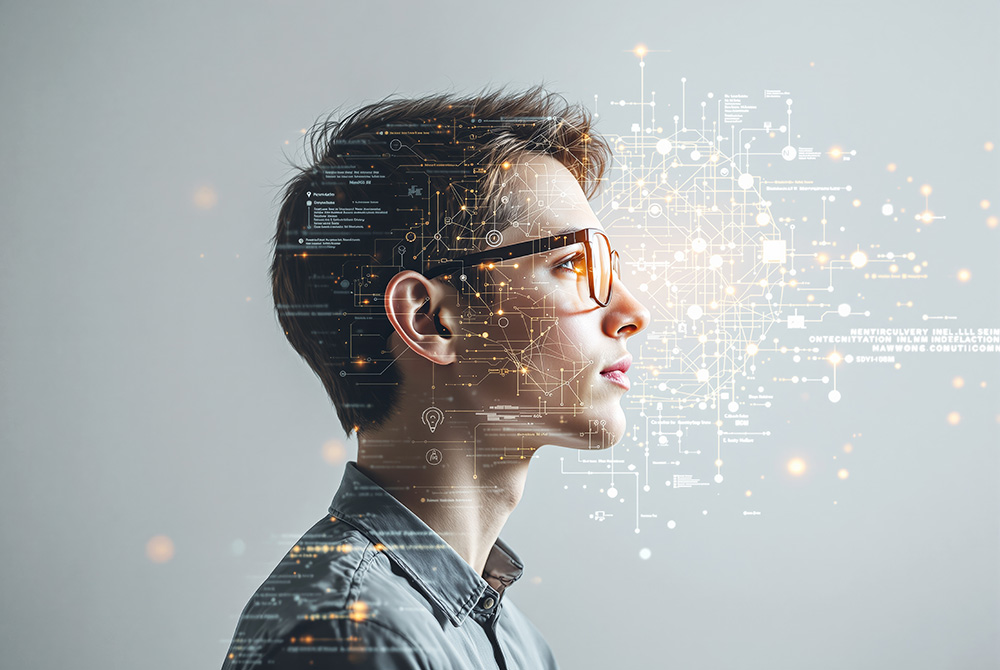
5:30 p.m.
Outsourcing Thinking? How AI & Co. Influence Our Cognition
The term “Cognitive Offloading” refers to the use of external aids to support, complement, or completely replace internal cognitive processes. The ongoing technological advancement offers more and more possibilities for this: navigation apps are used for orientation, voice assistants to retrieve information, online calendars to avoid forgetting appointments, and generative AI to create tailored texts. Due to this close intertwining of our internal cognition with external “thinking tools,” it is essential to research why and when such tools are used—and what implications this has for human thinking. An engaging, interactive presentation will take a closer look at “Cognitive Offloading”.
Speaker: Prof. Dr. Magdalena Abel, Cognitive Psychology

6:15 p.m. CANCELLED
Interdisciplinary teaching and learning:
Focus on UTN’s innovative teaching and learning concept
What do teaching and learning look like when they are completely reimagined? The Technical University of Nuremberg (UTN) is developing an innovative teaching and learning concept that focuses on active learning methods, interdisciplinarity, and digital support. In her keynote, Prof. Dr. Isa Jahnke provides insights into UTN’s approach to teaching: practical, collaborative, team-oriented, and reflective. She talks about feedback culture, diverse forms of assessment, and the role of teachers and learners as a joint team. What does that mean in concrete terms? Teaching is designed in such a way that students develop competencies and skills – both subject-specific and interdisciplinary. Real-world problems, collaborative learning, and the targeted use of digital tools – including AI – promote a deep engagement with the subject matter. Afterwards, there will be room for exchange, discussion, and new perspectives.
Speaker: Prof. Dr. Isa Jahnke, Founding Vice President for Academic and International Affairs
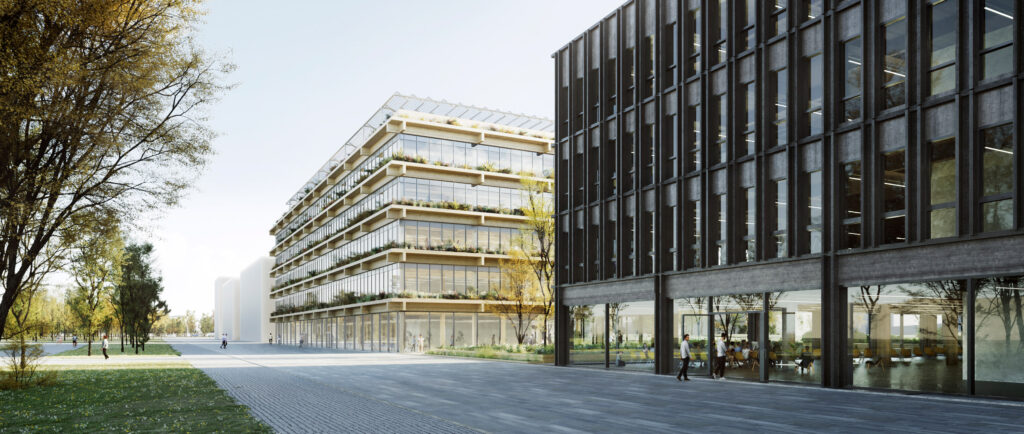
© Burckhardt + Partner
6:15 p.m.
The UTN and Its Campus – Perspectives for the Region
The University of Technology Nuremberg is a modern, international university with a focus on artificial intelligence, interdisciplinary research, and sustainable innovation. At the same time, its new campus and the new district of Lichtenreuth are being developed in the south of Nuremberg. This is where science, business, and society are growing together. The presentation shows how the UTN is acting as a catalyst for transformation, research, and talent development, and what opportunities this presents for the city and region—from knowledge transfer to new partnerships for a strong innovation ecosystem.
Speaker: Dr. Michael Fraas, Kanzler
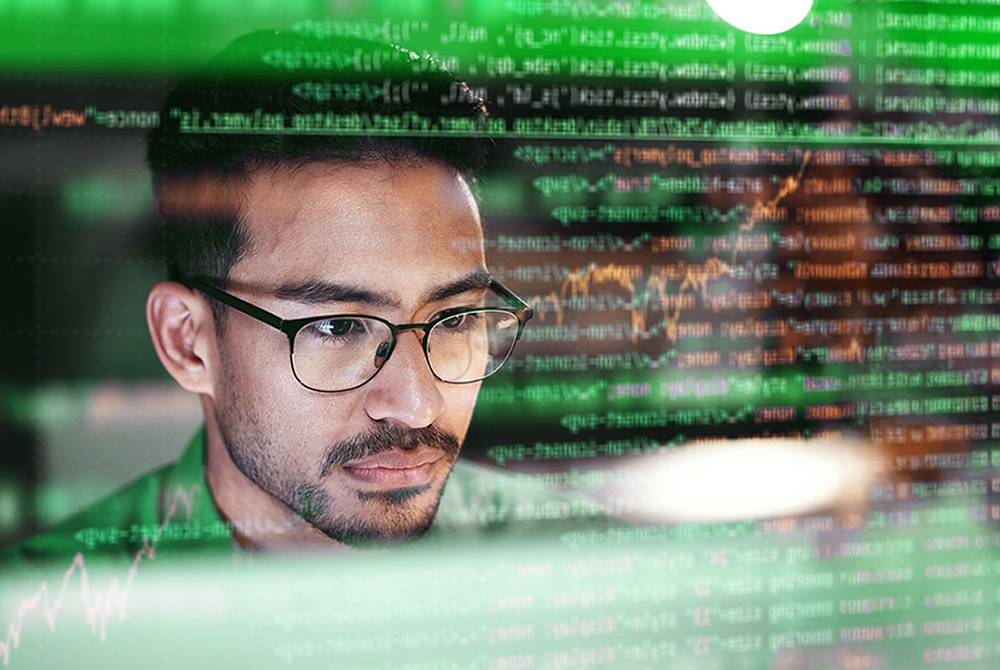
7 p.m.
Can AI do Science?
Artificial Intelligence, such as ChatGPT, is transforming science at a breathtaking pace – from identifying new medical treatments to generating scientific papers. But can machines truly replace human scientists? This session explores what AI can (and can’t) do in the lab and at the blackboard. Real examples show how AI assists research and where its current limitations lie. The focus is on multimodal content generation with AI, e.g. automatically creating scientific figures, as well as automated coding, experimentation, idea generation, and ethical concerns related to AI use in science. The presentation will be in English.
Speaker: Prof. Dr. Steffen Eger, Natural Language Learning and Generation

7:45 p.m.
Outsourcing Thinking? How AI & Co. Influence Our Cognition
The term “Cognitive Offloading” refers to the use of external aids to support, complement, or completely replace internal cognitive processes. The ongoing technological advancement offers more and more possibilities for this: navigation apps are used for orientation, voice assistants to retrieve information, online calendars to avoid forgetting appointments, and generative AI to create tailored texts. Due to this close intertwining of our internal cognition with external “thinking tools,” it is essential to research why and when such tools are used—and what implications this has for human thinking. An engaging, interactive presentation will take a closer look at “Cognitive Offloading.” The presentation will be in English.
Speaker: Prof. Dr. Magdalena Abel, Cognitive Psychology
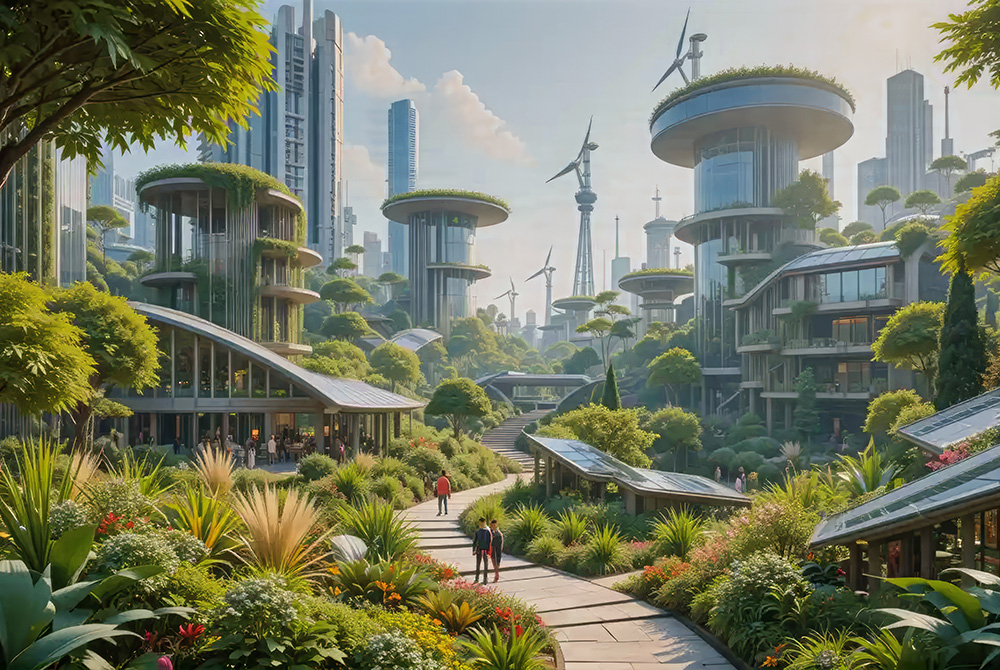
8:30 p.m.
Back to the Future: Psychological Factors and Technologies in Our Visions for the Future
People can imagine the future—but new technologies provoke both hopes and concerns. This talk explores psychological aspects that shape our visions for the future, such as personal versus collective perspectives. A brief survey invites you to reflect on your own view of technological futures.
Speaker: Benedikt Schilling, Doctoral Researcher, Cognitive Psychology

9:15 p.m.
Calculating Uncertainties: Mathematical Optimization for Energy Networks
Planning tomorrow’s energy grids is a complex challenge—marked by uncertainties such as volatile energy production, variable demand, and unpredictable conditions. This presentation shows how mathematical optimization helps to account for uncertainties and design resilient energy systems.
Speaker: Prof. Dr. Johannes Thürauf, Discrete Optimization
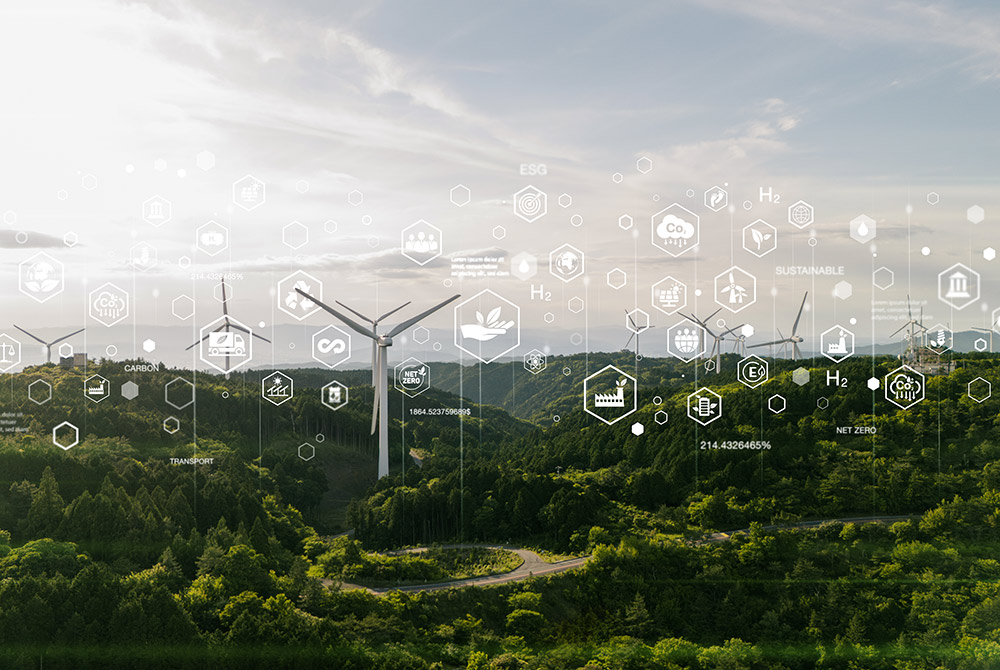
10 p.m.
Combining Growth and Climate Protection – Talk by Veronika Grimm
It is essential for the success of the energy transition that climate protection and economic growth go hand in hand. Worldwide, it is already evident today that it is possible to decouple economic growth from carbon emissions. Technological progress is a key driver in this process. Germany and Europe have numerous opportunities to play an active role in shaping global climate protection and therefore also to develop their own growth potential.
Speaker: Prof. Dr. Veronika Grimm, Energy Systems and Market Design
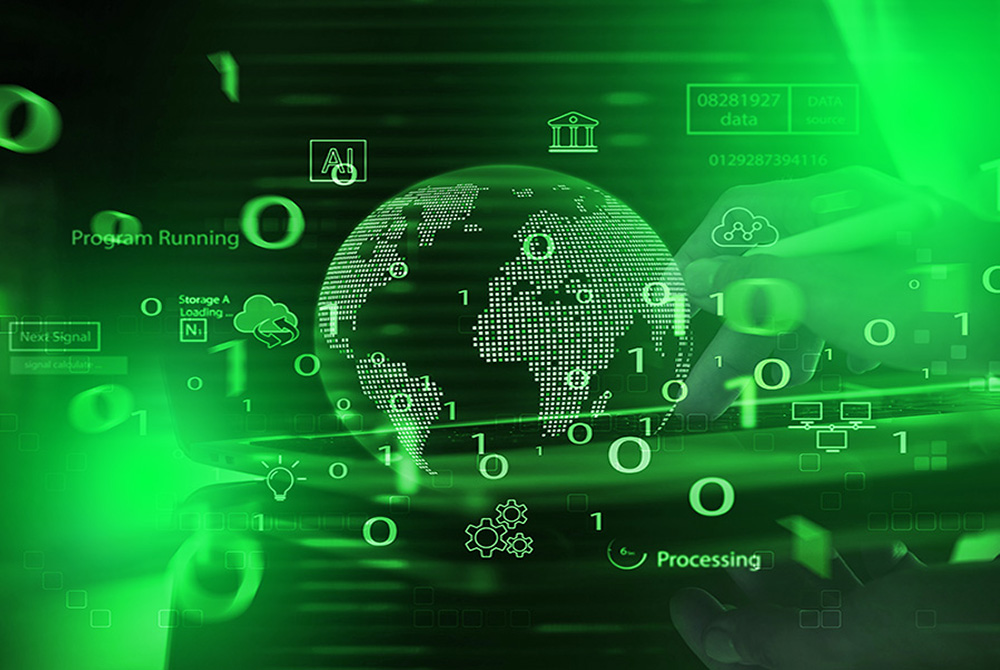
10:45 p.m.
What can Mathematics and AI Learn from Each Other?
Can AI beat humans at math? What does this mean for research in mathematics? And what role does mathematics play in the development and understanding of artificial intelligence? We will explore these questions together and learn about a research focus of the Applied Discrete Mathematics Lab at UTN.
Speaker: Prof. Dr. Hertrich, Applied Discrete Mathematics
Copyright images: AdobeStock